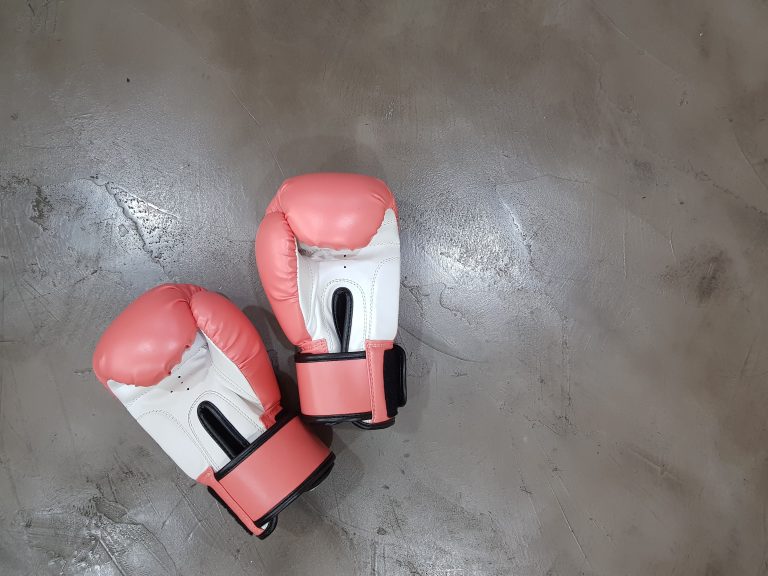The 10 Best Tips for Successful Karate Training at Home
Karate is a martial art that requires discipline, focus, and a lot of practice. However, finding time to attend classes or going to the dojo can be difficult for many people. That’s where at-home karate training comes in! With the right mindset, equipment, and dedication, you can improve your karate skills from the comfort of your own home. Here are ten tips to help you get started:
1. Create a dedicated training space
Carving out a specific area of your home for karate training is crucial. Make sure it is a quiet and spacious area where you can move around freely without risking injury or breaking furniture. Choose a room with a smooth floor, and ensure there are no sharp objects around.
2. Invest in proper equipment
It is important to use the proper equipment when practicing karate at home. You will need a mat or cushioned surface to practice on, a good set of gloves or hand wraps, and a punching bag, if possible. Additionally, you may need protective gear such as a mouthguard or headgear to prevent injuries.
3. Follow a structured training program
Karate training involves a lot of moves and techniques, so it is important to follow a structured program. Look for programs online that can guide you through different levels and ensure you are training properly. You can also hire a personal trainer to help you create a personalized plan.
4. Focus on proper form and technique
Karate techniques require proper form and technique to be effective. Make sure to watch instructional videos or work with a coach to get your form right. Focus on the fundamentals of each technique and gradually work up to more complex moves.
5. Practise regularly and consistently
Consistency is key when it comes to practice. Try to set aside time each day or every other day to train, even if it’s just for 30 minutes. This will help you build muscle memory and progress faster.
6. Stay motivated
Motivation is key to achieving your goals in karate. Set realistic goals for yourself, and keep track of your progress. Celebrate your achievements, big or small, and don’t be too hard on yourself if you miss a training day or fail to achieve a goal.
7. Train with a partner
Practising with a partner can be beneficial for both motivation and improvement. Find someone who is interested in the same goals as you and is willing to practice together. You can also join an online community or a local karate club to find training partners.
8. Cross-train with other disciplines
Cross-training in other disciplines such as yoga, Pilates, or weightlifting can help develop strength, flexibility, and focus, which can benefit your karate techniques.
9. Learn from mistakes
Mistakes are a natural part of the learning process. Don’t be discouraged by your mistakes, but instead, learn from them. Analyse your mistakes and identify ways to improve your technique.
10. Rest and recover
Rest and recovery are essential for improving your karate skills. Allow your body time to rest and recover between training sessions to avoid burnout and prevent injuries.
Conclusion
Practising karate at home is an excellent way to enhance your skills and prepare for training at the dojo. By incorporating these ten tips into your training program, you can build discipline, focus, and improve your karate skills. Remember to stay consistent and motivated, and don’t forget to celebrate your progress. Happy training!
The 10 Best Tips for Successful Karate Training at Home – Frequently Asked Questions
Karate training is a fantastic martial art discipline that can provide numerous benefits for people of all ages. In recent times, many aspiring martial artists have resorted to home training due to various reasons like lack of time, money or a suitable training facility. With the availability of online resources, it has become easier to learn Karate at home now more than ever before.
If you have considered this option or you have been training at home already, some critical questions concerning the most effective way to train may come to mind. Here are the ten best tips for successful Karate training at home and frequently asked questions (FAQs) that you may have stumbled upon:
1. How can I ensure that my training space is adequate?
The first step towards successful Karate training is having an adequate space for practice. When setting up your training area, you should ensure that it is well-ventilated, spacious, and free of hazards that may cause accidents.
A good rule of thumb is to choose a room with a high ceiling to accommodate high kicks and jumps. Remove all furniture and clutter, and select an appropriate flooring that can withstand the demands of martial arts techniques like throws, sweeps, and falls. Tiled, hardwood, or carpeted floors with enough padding are ideal for Karate training.
2. How often should I train at home?
Karate training requires consistent and regular practice, and you must commit enough time to it every week. Regular home training builds muscle memory, improves fitness, and enhances technique mastery.
Aim for a minimum of three to four training sessions per week, with each session lasting for 30 to 60 minutes. Consistency, rather than the length of the session, is the key to successful training.
3. Can I train alone, or do I need a partner?
While having a training partner is beneficial in Karate, it is not mandatory. There are countless solo drills, exercises, and techniques that you can practice and perfect on your own.
Training alone also provides an opportunity to improve focus, balance, and self-awareness, which are crucial for Karate training.
4. Which Karate techniques should I practice at home?
When training at home, it is best to focus on fundamental techniques that form the foundation of Karate. These include basic kicks, punches, blocks, and footwork.
Other techniques like sparring, throws, and joint locks are better practiced with a partner and under professional guidance to prevent injury.
5. Can I learn Karate techniques from online resources?
Online resources like books, videos, and webinars can be a valuable source of information for home Karate training. However, it is essential to exercise caution when selecting the resources and verify their authenticity and credibility.
Additionally, online resources should never replace practical training under the guidance of a qualified Sensei or instructor.
6. How can I stay motivated when training at home?
Motivation is a critical element in any training program, and home training is no exception. To stay motivated, you should set specific goals and reward yourself when you achieve them.
You can also vary your training routine regularly to keep things exciting, challenge yourself with new techniques and drills, and join online Karate communities to keep in touch with fellow enthusiasts.
7. What should I wear when training at home?
Although Karate attire or Gi is not mandatory when training at home, it is advisable to wear comfortable and loose-fitting clothes that allow free movement. Your clothes should not restrict your movement, hinder your techniques or cause distractions during training.
It is worth investing in appropriate Karate training gear like gloves, shin guards, and headgear, especially when practicing advanced techniques that may cause injuries.
8. How can I track my progress when training at home?
Tracking your progress is crucial in home Karate training, and it helps to identify areas of improvement and set more realistic goals. You can track your progress by recording your training sessions, analyzing your techniques, and comparing them with the ideal form.
Various Karate apps and software can help monitor your progress and provide useful feedback, but nothing can replace the guidance of a qualified instructor or Sensei.
9. How can I prevent injuries when training at home?
Karate training at home requires the same level of caution and injury prevention as training in professional studios. Proper stretching, warm-up, and cooldown exercises before and after training are mandatory to avoid injuries and stiffness.
You should also use proper equipment that fits well and take breaks in between training sessions to prevent fatigue and burnout.
10. Can I teach Karate to my kids at home?
Teaching Karate to kids at home is possible, but it requires careful planning, guidance, and supervision. Parents should seek the services of a qualified instructor or Sensei who can provide appropriate online training resources, safety tips, and guidance.
Additionally, parents should ensure that the training area is kid-friendly, free of hazards, and age-appropriate in terms of Karate techniques and exercises.
Final Thoughts
Karate training at home can be an effective and rewarding way to master this martial art discipline. However, it requires discipline, consistency, and a commitment to safety and injury prevention.
By implementing these ten tips and addressing these frequently asked questions, you can enhance your Karate training experience and achieve your goals, whether you are training alone or with a partner. Always remember that safety is paramount in Karate, and the guidance of a qualified instructor or Sensei is irreplaceable.
Inhaltsverzeichnis






